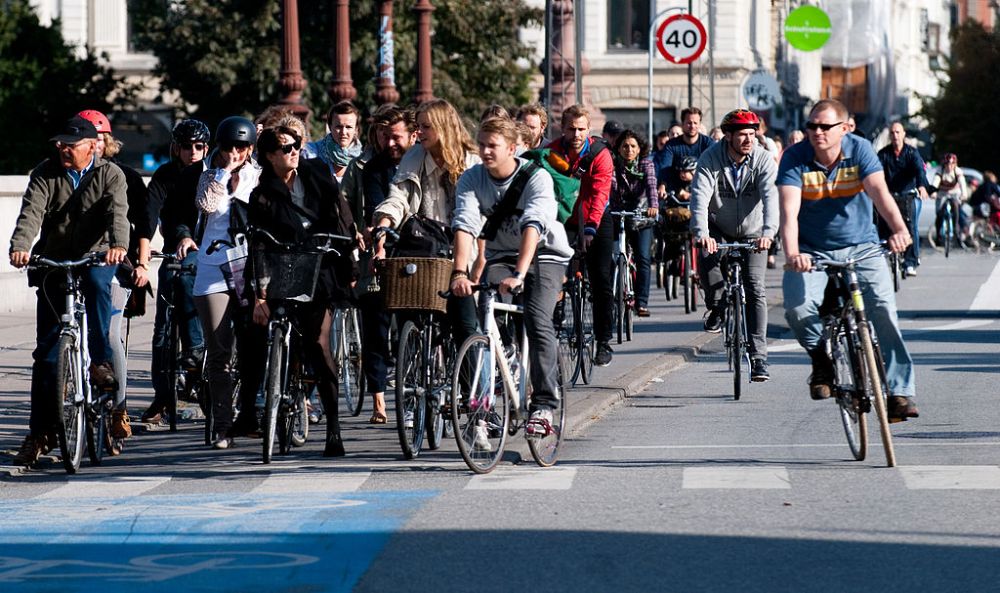More bicycles than cars in Copenhagen for the first time
Copenhagen, the capital city of Denmark, is now home to more bikes than cars.

Copenhagen, the capital city of Denmark, is now home to more bikes than cars.
The number of cars used daily amounts to 252,600, compared with 265,700 bikes, as a result of the addition of 35,080 new bikes added to the daily used means of transport.
The municipality has been keeping track of the number of bikes and cars since 1970, at which time there were 351,133 cars and 100,071 bikes.
In the last 20 years, the number of bikes used daily has increased by 68 per cent.
Bicycle traffic has increased by 15 per cent whilst vehicle traffic has decreased by 1 per cent during the last year, even though population of the capital city has increased steadily.
Klaus Bondam, former Technical and Environmental Mayor and currently Head of the Danish Cycling Federation, said: “What really helped was a very strong political leadership; that was mainly Ritt Bjerregaard [the former lord mayor], who had a dedicated and authentic interest in cycling... Plus, a new focus on urbanism and the new sustainability agenda broke the glass roof when it came to cycling.”
New cycling infrastructure has been developed since 2005, with bike and pedestrian bridges such as the Cykelslangen (the Cycle Snake) built throughout the city centre.
Bondam said: “Cycling went from being a normal part of daily life to a core identity for the city.”
Morten Kabell, Mayor of Technical and Environmental Affairs, said: “The central core of town between Nørreport, City Hall and Kongens Nytorv [will likely] become car-free within a decade.”
The city targets 50 per cent of commutes by bike throughout Greater Copenhagen by 2025 – an increase from 41 per cent currently.
He added: “People see that the fastest way to get around town is on a bicycle... In several new developments, car ownership is higher than it has been in older parts of town, but not ‘usership’.”
The new metro extension opening in 2019 will certainly make the numbers fall for bike commuting.
Kabell said: “There’s no doubt it will take some of the bike traffic; but the important thing for me is to have a green transport system. As long as it’s fossil fuel-free and alleviates congestion and air pollution, I’m cool with that.”
The challenges remain mainly in developing the necessary infrastructure for a growing number of used bikes, and the city has been inviting citizens to share their views on where bicycle lanes were missing or in bad shape.
A Cycle Track Priority Plan for 2017-2025 is in the process of being written, thanks to the data collected from 10,000 commuters.





